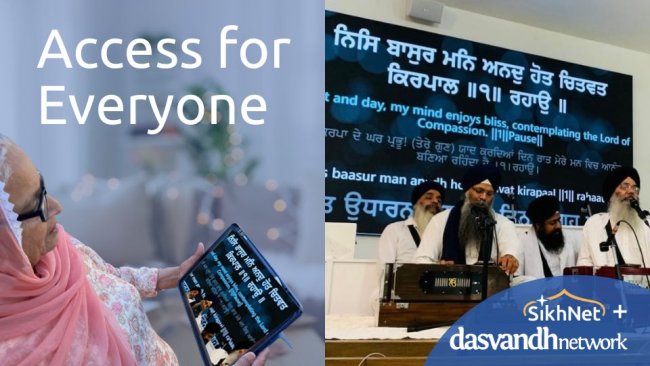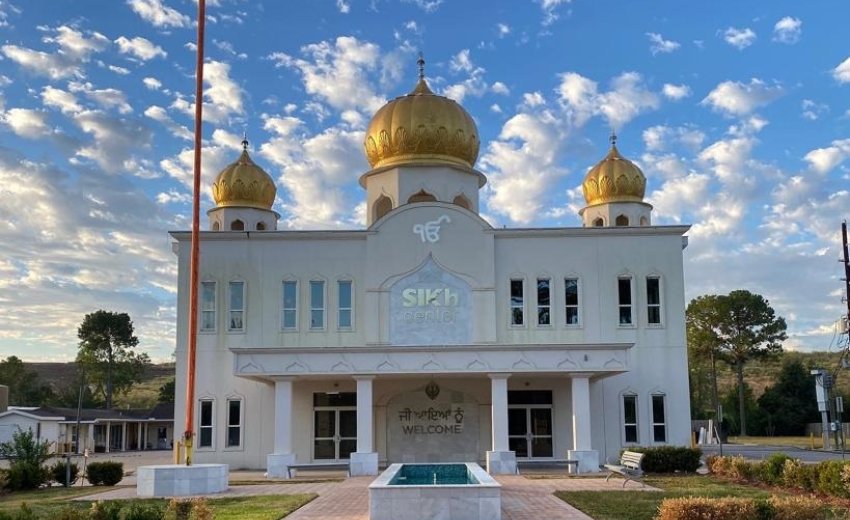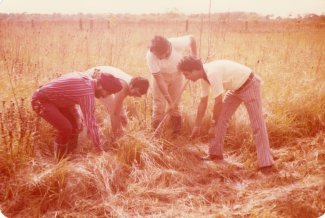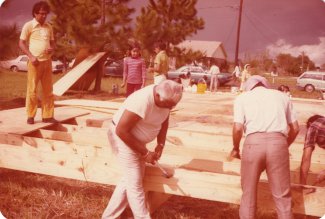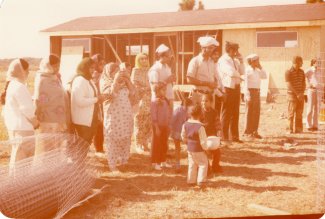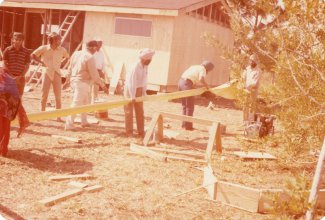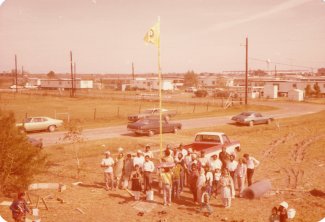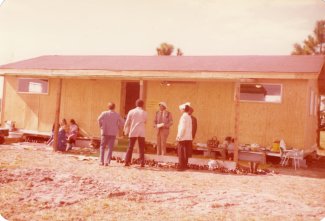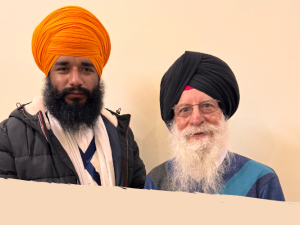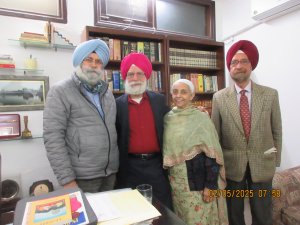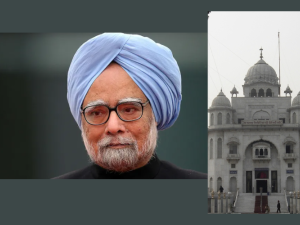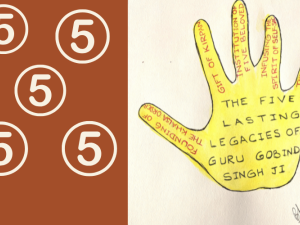This November month of 2023 is being celebrated as the Golden Jubilee celebration of the inauguration of The Sikh Center in Houston for having completed 50 years of community service. The very first Sikhs arrived in Houston in 1971. In the early 1970s, the boom in the oil, gas, and energy industries had created a fresh wave of job openings in Houston. Simultaneously, the establishment of the Texas Medical Center as the world’s largest medical center started attracting medical professionals to Houston with new opportunities. That was the time when Sikh engineers, doctors, even agriculturists, and other related field professionals started trickling down to Houston from the universities and from other cities in the United States plus India. Imagine how these young Sikh professionals felt upon arriving here in the midst of this cowboy countryside. They experienced a big void in their spiritual and faith support needs here. The void was so deeply felt that it gave birth to the idea and need of having a religious gathering of those with the same faith upbringing.
At the beginning, there were about a dozen plus Sikh families in Houston. They decided to hold their first religious gathering for worship at apartment # 607 of the Athena Apartment Complex located at 6034 Bellaire Blvd. in Houston on August 1, 1971. As there was no Sri Guru Granth Sahib available in Houston, it was brought from the household of Iqbal (Ike) Singh Sekhon in Dallas with great enthusiasm and due reverence. These gatherings become a monthly occurrence; however, some neighbors were not very happy with the inconvenience caused by these congregational gatherings resulting in parking problems for others.
The holding of the monthly gatherings at volunteer’s houses provided some sense of community belonging despite the absence of a formal house of worship. But soon, the slowly growing community full of enthusiasm became strongly inclined to having their own place of worship and this resulted in searching for a piece of land to build a Gurdwara. Dr. Sukhmander Singh and Sarwan Singh Purewal, along with others, scouted all over the city looking for a plot of land for the Gurdwara at a reasonable cost as funds were very scarce. Finally, they found a piece of land for $10,000 on Prairie Drive that appeared attractive from various considerations. The landlord, however, was not willing to sell only a part of that two-acres tract.
After much deliberation, it was decided that all of the two-acres land at 8819 Prairie Drive, Houston, Texas 77064 should be purchased. The meagre funds raised by the fledgling community members were merely enough to cover the cost of one acre of land. With foresight seven of the members formed a trust and offered to finance the remaining one-acre piece of land with a precondition that the place of worship be built there in a timely manner. If that failed to materialize, then this group of seven could decide what to do with that one-acre piece of land that they had financed, in order for the transaction to go through. This foresight of these seven individuals enabled the deal for land purchase to proceed and it suddenly charged the atmosphere with enthusiasm to make that dream a reality. Those seven trustees were - Sarwan Singh Purewal, Sukhmander Singh, Gurdarshan Singh Brar, Jasbir Singh Gill, Dr. Surjit Singh Grewal, Harjit Singh Sohal, and J. P. Singh.
The two-acres lot had a thick growth of wild grass which had to be cleared before any construction activity could start. The pioneers, in their enthusiasm, decided to level off the ground themselves and this became the launching pad of concept of Kar Sewa to build the Gurdwara. Even the American neighbors enthusiastically helped by loaning the use of their lawn mowing equipment. The lawn mowers in those days were manually powered. As the mowing started, a new challenge of thick overgrowth was encountered rendering the job of mowing impossible. The volunteers came up with the idea of putting rope on the mowers and pulling it from the front thus doubling the manpower for the job. By employing this technique, the wild grass overgrowth and bushes were cleared.
Sarwan Singh Purewal, who was an experienced person in construction projects, spearheaded the construction activities. The permitting requirements and approval of the structural design from the county authorities was coordinated by Jasbir Singh Sethi and Dr. Sukhmander Singh. They, along with G. S. Brar and Sarwan Singh Purewal, were also responsible for getting the By-laws framed. J. S. Sethi drafted, prepared the document, and finalized the By-Laws plus the Incorporation document. The Sikh Center also obtained the IRS approval as a charitable Non-Profit Organization.
With great enthusiasm the construction activities were started, because of the paucity of resources the community took in their own hands to do construction work. The atmosphere was very uplifting for all the volunteers, who enjoyed having a good time and fun while working there at the construction site. Naturally, the day for the women started earlier as they prepared tea, planned meals, and gathered snacks and drinks, etc. Mrs. Surjit K Sethi along with Mohinder K Purewal and Surinder K Gill would finalize the menu for meals and assigned the task of cooking the meals and bringing them to the site to their peers. The women were busy serving food and snacks, cleaning, helping, and watching the children, while the men completed construction activities. During the Kar Sewa at the construction site, the atmosphere was charged with enthusiasm and every weekend felt so festive. The women would clean up to wrap up the day’s construction activities and the children would assist them.
The wooden structure, which was 20 ft. x 40 ft. in size, was completed in about two months’ time. As most of the volunteers had daytime jobs, much of the work was carried out in the evenings and on weekends. The activities were not just a physical building effort; but were building a new family bonding tradition in Houston within this small community coming from different areas and backgrounds. There were few American Sikhs living in town who also stepped in and joined the building efforts. Sadhu Singh, an American Sikh, and his team singlehandedly carried out the entire electrical installation work of the new wooden building. They were also very actively involved in all the religious and social activities of the Sangat.
For the opening ceremony of The Sikh Center, the birthday of Guru Nanak, the founder of the Sikh Religion, was chosen in November1973. Louie Welch, the then Mayor of the City of Houston, was approached to declare opening day as a “Sikh and Guru Nanak Day” to signify the broadening of Southern Texas’ religious landscape and to convey the idea of unity as well as the beauty in diversity. The Sikh Center being the first place of worship for the immigrants from the Indian Subcontinent, it became a talk and place to be in, within the immigrant community.
The unique temple which broadened the religious landscape in the bible belt of Texas unfortunately caught fire when lightning struck the wooden building on July 11, 1974. The entire building was reduced to ashes. Miraculously, only the cover of the Sri Guru Granth Sahib and the corners of the pages were damaged. The partially burnt Sri Guru Granth Sahib was cremated in the lot, under the guidance of some learned Sikhs in Canada. The pain-stricken community members collected the remains of the Sri Guru Granth Sahib and took them over to the Guadalupe River in Fort Bend County to be submersed in the flowing water for “Jal Parwah”. The community’s initial enthusiasm for having their own place of worship was washed away in the accompanying rains, casting a bit of gloom over the community. The community, although devastated was yet determined to move forward. For a while, the Keertan Diwans were held on the bare grounds of The Sikh Center.
Undaunted the well-educated and closeknit Sikh community mustered courage again to build a permanent structure of brick, concrete, and steel. As the community kept growing, it was decided that the size of the new building would be 60 ft. x 60 ft. The architectural drawings and construction estimates were prepared. When the actual estimates came much higher than the guessed and projected figures, a new drive for funds started at an accelerated pace.
Despite the paucity of funds, the community’s enthusiasm and excitement were running very high. Although the building was not ready for occupation, Vaisakhi in April 1975 was celebrated inside the partially completed first floor of the current Sikh Center brick and concrete building. The construction was progressing very well, and the martyrdom day (Shaheedi Purab) celebration of Guru Tegh Bahadur Ji was celebrated there. Gyani Wadhawa Singh, a Kathakaar, was in attendance, and he shared a special katha with the Sangat members on this auspicious occasion. Thus, the first-floor building was dedicated to Guru Tegh Bahadur Ji. After some years, a Sindhi Raagi Jatha of Ishwar Balani was the first professional jatha to perform at The Sikh Center.
It is worth mentioning here that most of the community members did manual labor in the evenings after returning from their respective jobs and on the weekends. To support the late working hours schedule for the construction effort, a community kitchen was started running in the evenings, with food being prepared by the families of the volunteers taking turns in rotation. The hot meals cooked were served to all the volunteers doing manual work there creating a family environment through bonding. The atmosphere that was created was very uplifting for the families and it helped to create a tightknit community. The Sikh Center site became a hub of activity, participation, and gathering for rendering selfless service in the spirit of establishing a spiritual community center of their dreams.
The first floor of The Sikh Center became operational, not only in providing to the spiritual needs of the community, but also catered to social and community needs. Following religious services, the hall became a dining hall for a community meal known as Langar. As there was no Bhai Sahib (Head Priest) at the time, the Sangat members volunteered for all the activities related to having a complete religious service. To maintain the momentum of the Sangat's enthusiasm and to reinforce a sense of faith during the construction phase, a live play on Rani Jindan was arranged, along with the showing of the films ‘Nanak Naam Jahaz Hai’ and ‘Nanak Dukhiya Sab Sansar’. Then the second floor was added in 1978 and the worship center was moved to the second floor, making the first floor a dedicated Kitchen cum Langar/dining hall.
In December 1987, due to some malfunctioning of the electrical system resulted in fire which very quickly spread to the second floor. The Fire Department was called and eventually the fire was brought under control, but it resulted in some damage to both floors of The Sikh Center Gurdwara building. Repairs and refurbishing had to be carried out to make the premises operational again. Later on, inspections were carried out to check the structural integrity, which was verified by outside consultants who confirmed soundness of structure.
More recently from 2016 to 2019, the main building has been upgraded and the front facade has undergone a major facelift with the installation of beautiful golden domes. The Sikh Center is not just the first Gurdwara in the state of Texas, but it has a unique distinction of being approved for the Texas Historical Marker.
Acknowledgement: This writeup has been made possible with the input of some of the early pioneers, and it is dedicated to their foresight and commitment that made it a reality which is catering to ever growing community.
********
